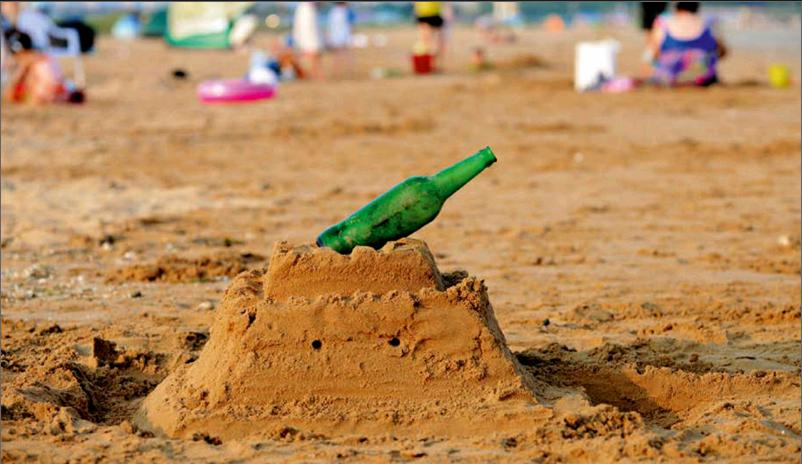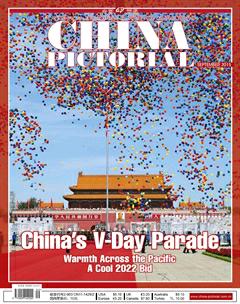The Ubiquitous Tsingtao Beer Bottle
by+Scott+Huntsman


No other object is as representative of my years spent in China than the Tsingtao beer bottle. From the day I arrived and my jaw dropped at the comparatively miniscule price until the day I left, not a day passed that I didnt set eyes on one. In second and third-tier cities, a standard refillable bottle of Tsingtao runs 2 RMB (US$ 0.32), and 0.5 RMB is refundable as the bottle deposit. In restaurants, the price jumps up to 3 RMB, usually cheaper than soda. If youre unsure about drinking tap water, beer becomes the most economical choice. In China, you may find yourself drinking beer all the time as a matter of convenience.
And if you happen to drink a couple at home every day and dont stay on top of returning the bottles, they can accumulate fast. The 5 “mao” bottle deposit is just enough to save them from the dumpster diving bottle collectors (when I do put them outside, its like Christmas for them), but not enough to remember to bring bottles every time you purchase new beers. And if you line up dozens of glass bottles in your apartment and bump into them because youre a bit tipsy, well, your neighbors are going to be reminded of your alcohol consumption habits.
One of the first odd things that newly arrived Westerners see in China is that when Chinese people drink water straight, its usually hot. Most Chinese people dont even realize it, but this tradition developed from the habit of boiling water which kills germs– even if they didnt know they existed. Conversely, Europeans traditionally start drinking beer as children because the water accompanying the fermented barley and hops is likewise cleansed of bacteria. Before the development of coffee as a beverage, the most popular breakfast drink in the United States was beer.
Yet youre not walking around China drunk all the time because the beer has such a low concentration of alcohol. Despite the fact that baijiu – Chinese rice spirit, often mistranslated as “white wine” because it means literally “white alcohol” – is usually about 50% alcohol and definitely traditionally Chinese, the Chinese people usually arent big drinkers. Many start turning bright red after a single drink. For Europeans, alcohol is an absolute necessity for daily life. The first item of business for every European missionary arriving in China centuries ago was planting grapes and getting on the winemaking. And the three big modern Chinese beer brands – Tsingtao, Harbin and Yanjing – were all born in regions with a European presence. The city of Qingdao was once occupied by Germany, Harbin has always had a heavy Russian presence, and Beijing, as the capital for centuries, has long attracted an eclectic mix of foreigners.

Although Beijing was my long-time Chinese home, I spent a year in the far northeast region upon first arriving in China, and wherever its cold, drinking tends to be heavier. A common question upon first meeting there was, “How many beers can you drink?” I tended to estimate “ten”, which seemed to be impressive enough. And Harbin beer, hailing from one of the coldest cities in China, is the best. Only because of Tsingtaos ubiquity across China did its bottle make such a heavy impression on my memories of the country. In the northeast they drink heavier and they drink Harbin, so its no surprise it has emerged as the most decent of domestic Chinese beers.
In fact, all of my foreign friends agreed that of the Chinese beers(forget foreign imports… too expensive!), Harbin was clearly the best, and that in its absence Tsingtao was an acceptable second choice, but that Yanjing (Beijing) beer was clearly the worst. Of course, in the city of Beijing it is found in every shop and restaurant before Tsingtao. On one occasion, after going shop-to-shop in search of an alternative to Yanjing, a Canadian friend shouted to a shopkeeper in Chinese,“Beijing beer is no good! Qingdao beer is delicious!”
By living abroad, you learn as much about your own culture as you do about others, and in China I realized that I really like beer. And hamburgers. And hot dogs. Basically anything originally from Germany that was honed and optimized by America. Youre welcome, China, now watch out for drunk drivers.

